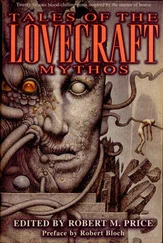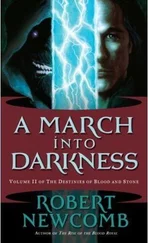Robert Pirsig - Lila. An Inquiry Into Morals
Здесь есть возможность читать онлайн «Robert Pirsig - Lila. An Inquiry Into Morals» весь текст электронной книги совершенно бесплатно (целиком полную версию без сокращений). В некоторых случаях можно слушать аудио, скачать через торрент в формате fb2 и присутствует краткое содержание. Жанр: Современная проза, на английском языке. Описание произведения, (предисловие) а так же отзывы посетителей доступны на портале библиотеки ЛибКат.
- Название:Lila. An Inquiry Into Morals
- Автор:
- Жанр:
- Год:неизвестен
- ISBN:нет данных
- Рейтинг книги:3 / 5. Голосов: 1
-
Избранное:Добавить в избранное
- Отзывы:
-
Ваша оценка:
- 60
- 1
- 2
- 3
- 4
- 5
Lila. An Inquiry Into Morals: краткое содержание, описание и аннотация
Предлагаем к чтению аннотацию, описание, краткое содержание или предисловие (зависит от того, что написал сам автор книги «Lila. An Inquiry Into Morals»). Если вы не нашли необходимую информацию о книге — напишите в комментариях, мы постараемся отыскать её.
Lila. An Inquiry Into Morals — читать онлайн бесплатно полную книгу (весь текст) целиком
Ниже представлен текст книги, разбитый по страницам. Система сохранения места последней прочитанной страницы, позволяет с удобством читать онлайн бесплатно книгу «Lila. An Inquiry Into Morals», без необходимости каждый раз заново искать на чём Вы остановились. Поставьте закладку, и сможете в любой момент перейти на страницу, на которой закончили чтение.
Интервал:
Закладка:
Kluckhohn conceded that values are ill-defined and subject to a multiplicity of competing definitions, but asserted that verbal definitions of values are not necessary to field work. He said that whether they were well-defined or not everyone agreed with what they were in actual practice. He tried to solve the problem by allowing everyone in his Values Project to define values any way they wanted to, but in formal social science that’s unacceptable.
In his Values Project Kluckhohn described five neighboring Southwest American cultures in terms of their evaluations of their neighbors, and provided a good description of these cultures by this method. But as Phædrus continued reading elsewhere, he discovered that values, like every other general term in anthropology, were subject to the usual bilious attack. Sociologists Judith Blake and Kingsley Davis had the following to say about values:
As long as the cultural configurations, basic value attitudes, prevailing mores or whatnot are taken as the starting point and principal determinant, they have the status of unanalyzed assumptions. The very questions that would enable us to understand the norms tend not to be asked, and certain facts about society become difficult if not impossible to comprehend.
Mores, determinants, norms… these were the jargon terms of sociology into which they converted things they wanted to attack. That’s how you know when you’re within a walled city, Phædrus thought. The jargon. They’ve cut themselves off from the rest of the world and are speaking a jargon only they can really understand.
Worse yet, they went on, the deceptive ease of explanation in terms of norms or value attitudes encourages an inattentiveness to methodological problems. By virtue of their subjective emotion and ethical character, norms and especially values are among the world’s most difficult objects to identify with certainty. They are bones of contention and matters of disagreement… an investigator… tends to be explaining the known by the unknown, the specific by the unspecific. His identification of the normative principles may be so vague as to be universally useful, i.e. anything and everything becomes explicable. Thus, if Americans spend a great deal of money on alcoholic beverages, theater and movie tickets, tobacco, cosmetics and jewelry, the explanation is simple: they have a good-time ideology. If, on the other hand, there is a lack of social intimacy between Negro and white, it is because of a racism value. The cynical critic might advise that, for convenience in causal interpretation, the values of a culture should always be described in pairs of opposites.
Explicit definitions, when given, demonstrate the nebulous character of "value" , Blake and Davis said. Here, for example, is the definition of "value-orientation" in a 437-page book on value orientations:
Value orientations are complex but definitely patterned (rank-ordered) principles resulting from the transactional interplay of three analytically distinguishable elements of the evaluative process — the cognitive, the affective, and the directive elements — which give order and direction to the ever-flowing stream of human acts and thoughts as these relate to the solution of common human problems.
Poor Kluckhohn, Phædrus thought. That was his definition. With that lead balloon for a vehicle there was no way he could succeed.
The attack made Phædrus want to get in there and start arguing. The statement that values are vague and therefore shouldn’t be used for primary classification is not true. There’s nothing vague about a value judgment. When a voter goes to the polling booth he’s making a value judgment. What’s so vague about that? Isn’t an election a cultural activity? What’s so vague about the New York stock exchanges? Aren’t values what they’re dealing in? How about the US Treasury? Who in this world is more specific than the Internal Revenue Service? As Kluckhohn kept saying, values are not the least vague when you’re dealing with them in terms of actual experience. It’s only when you bring back statements about them and try to integrate them into the overall jargon of anthropology that they become vague.
This attack on Kroeber and Kluckhohn’s values was a good example of what had stopped Phædrus' own entry into the field. You can’t get anywhere because you are forced to resolve arguments every step of the way about the basic terms you are using. It’s hard enough to talk about Indians alone without having to resolve a metaphysical dispute at the end of each sentence. This should have been done before anthropology was set up, not afterward.
That was the problem. The whole field of cultural anthropology is a house built on intellectual quicksand. As soon as you try to build the data into anything of theoretical weight it sinks and collapses. The field that one might have expected to be one of the most useful and productive of the sciences had gone under, not because the people in it were no good, or the subject was unimportant, but because the structure of scientific principles that it tries to rest on is inadequate to support it.
What was clear was that if he was going to do anything with anthropology the place to do it was not in anthropology itself but in the general body of assumptions upon which it rests. The solution to the anthropological blockage was not to try to construct some new anthropological theoretic structure but to first find some solid ground upon which such a structure can be constructed. It was this conclusion that placed him right in the middle of the field of philosophy known as metaphysics. Metaphysics would be the expanded format in which whites and white anthropology could be contrasted to Indians and Indian anthropology without corrupting everything into a white anthropological walled-in jargonized way of looking at things.
Whew! What a job! He wondered if he was biting off ten times as much as he could possibly chew. This could fill a whole shelf full of books. A whole corridor of shelves! But the more he thought about it the more he saw that the only alternative was to quit entirely.
There was a sense of relief though. Metaphysics was an area of study that had interested him more than any other as an undergraduate philosophy student in the United States and later as a graduate student in India. There was a sense of opening up after the endless tangles and nettles of unfamiliar anthropology. He had finally landed in his own brier patch.
Metaphysics is what Aristotle called the First Philosophy. It’s a collection of the most general statements of a hierarchical structure of thought. On one of his slips he had copied a definition of it as that part of philosophy which deals with the nature and structure of reality. It asks such questions as, Are the objects we perceive real or illusory? Does the external world exist apart from our consciousness of it? Is reality ultimately reducible to a single underlying substance? If so, is it essentially spiritual or material? Is the universe intelligible and orderly or incomprehensible and chaotic?
You might think from this primary status of metaphysics that everyone would take its existence and value for granted, but this is definitely not so. Even though it has been a central part of philosophy since Ancient Greek times it is not a universally approved field of knowledge.
It has two kinds of opponents. The first are the philosophers of science, most particularly the group known as logical positivists, who say that only the natural sciences can legitimately investigate the nature of reality, and that metaphysics is simply a collection of unprovable assertions that are unnecessary to the scientific observation of reality. For a true understanding of reality, metaphysics is too mystical. This is clearly the group with which Franz Boas, and because of him modern American anthropology, belongs.
Читать дальшеИнтервал:
Закладка:
Похожие книги на «Lila. An Inquiry Into Morals»
Представляем Вашему вниманию похожие книги на «Lila. An Inquiry Into Morals» списком для выбора. Мы отобрали схожую по названию и смыслу литературу в надежде предоставить читателям больше вариантов отыскать новые, интересные, ещё непрочитанные произведения.
Обсуждение, отзывы о книге «Lila. An Inquiry Into Morals» и просто собственные мнения читателей. Оставьте ваши комментарии, напишите, что Вы думаете о произведении, его смысле или главных героях. Укажите что конкретно понравилось, а что нет, и почему Вы так считаете.











